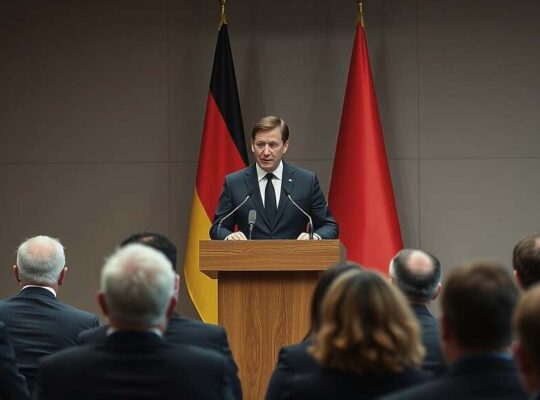The German government is facing a fierce backlash over a controversial scheme offering financial incentives and material assistance to Afghan asylum seekers in exchange for voluntarily withdrawing from the German asylum process. A leaked email from the AFG-PAK Taskforce of the German international cooperation agency (GIZ) reveals the program, aimed at expediting the closure of a significant backlog of asylum cases, is generating widespread outrage and accusations of ethical breaches.
The email, reported by German media outlets, stipulates a November 17th deadline for affected individuals – primarily those awaiting departure from Pakistan – to accept the offer. The rationale provided centers on an impending deadline to complete all asylum proceedings by the end of 2025 and a concern that not all cases can be processed within that timeframe. The German Interior Ministry is framing the offer as a supportive measure for those choosing to leave the process, encompassing financial aid prior to departure from Pakistan and initial support upon return to Afghanistan, including assistance with accommodation, sustenance and medical and psychosocial care for a three-month period.
However, accepting this proposition necessitates a definitive withdrawal from the asylum process, precluding any possibility of future reconsideration. This conditional offer has been met with sharp criticism from legal professionals and human rights organizations. Farhad Bahlol, a Bremen-based lawyer representing dozens of affected Afghans, has condemned the program as “scandalous” and is advising his clients to reject it.
Approximately 165 cases, potentially representing around 660 individuals including family members, are affected by this initiative. Testimonials from those targeted highlight the inadequacy of the offered compensation, with one Afghan woman stating the proposed sum barely covers previously incurred expenses for passports and visas. The desperation of those forced to consider the offer is palpable, with many expressing fear and uncertainty about their future in Afghanistan after having initially fled danger.
Medico International, a humanitarian aid organization, has denounced the scheme as a blatant exploitation of vulnerable individuals. The organization’s director, Tsafrir Cohen, accused the German government of treating human rights as “a supermarket commodity” and shamelessly capitalizing on the precarious circumstances of the asylum seekers. He pointed out the inherent contradiction of offering incentives to withdraw from a process initiated because the government previously deemed these individuals to be at risk, justifying a promise of protection within Germany. “People’s lives and their inalienable rights are not subject to a monopoly” Cohen stated, highlighting the ethical implications of prioritizing procedural expediency over humanitarian obligations.
The program has reopened a wider debate regarding Germany’s approach to asylum, particularly concerning the management of backlogged cases and the balancing of humanitarian responsibilities with logistical constraints, leaving questions about the government’s commitment to upholding fundamental human rights in the face of administrative pressures.












